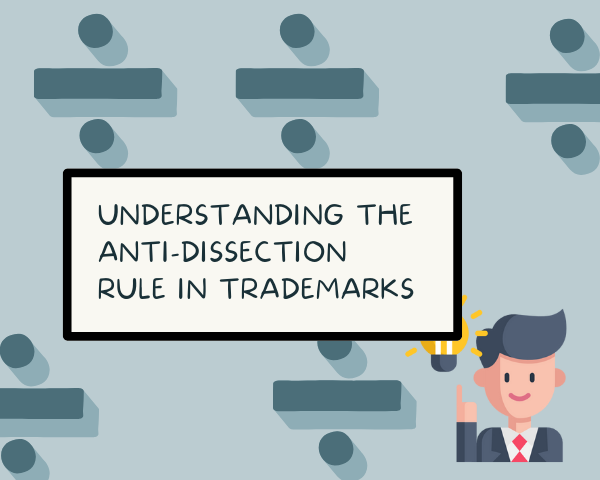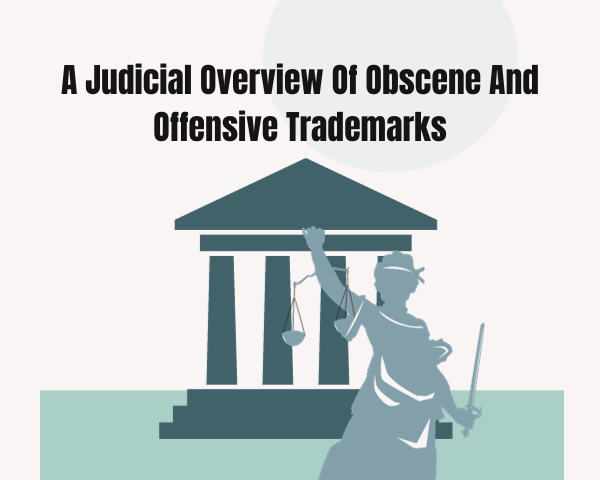Organizations file hundreds of trademark applications every year. A brand name and logo should be unique and distinct to be qualified for trademark registration. However, there are also provisions to register a set of descriptive words as a trademark.
The descriptive nature refers to one or more words that directly describe the service or product of the business. For descriptive words to qualify for trademark registration, the words should be very distinct. The distinctiveness can be either in the form of obtaining a secondary meaning or attaining recognition through prolonged usage.
Distinctiveness through secondary meaning
Sometimes, the descriptive words become so entwined in the consumer’s mind that they forget the actual primary meaning of the words. When customers come across those words, they immediately associate them with the product or service of the business. This mental association shows that descriptive words have become distinct through secondary meaning. Such words are eligible for distinctive trademarks, and the trademarks Airtel and Red Lobster have acquired distinctiveness through secondary meaning.
Distinctiveness through usage
We cannot achieve distinctiveness through usage over a short period. It takes years together for a company to establish distinctiveness to a descriptive set of words through usage. Sometimes, a business would use a set of descriptive words to market its product. Furthermore, the company would continuously use those words for a prolonged time in its promotions and marketing strategy. Hence, consumers could associate those words only with a particular brand.
As a result, the mark becomes well-known, and the company gains goodwill and reputation for the descriptive set of words through their products. This shows the terms have acquired distinctiveness over time by use. Pepsi and whirlpool are some examples of trademarks that are distinct through usage.
Let us look into some compelling, distinct cases; descriptive trademarks are protected.
Godfrey Philips India Ltd. v. Girnar Food and Beverages Pvt. Ltd. case
The appellant Godfrey Philips India Ltd., sells different tea varieties under the ‘umbrella trademark’ Tea City, and it sells extra-strong CTC tea with the name ‘Super Cup.’ Furthermore, the appellant acquired a reputation for the term ‘Super Cup,’ and the customers have come to associate the word with their extra-strong CTC tea. It filed a case stating that the respondent uses a deceptively similar word and sells tea packages with the name ‘Super Cup.’ Also, the respondent dishonestly uses the words to allure customers and enjoy the appellant’s reputation causing massive loss to their business.
The respondent, Girnar Food and Beverages Pvt. Ltd., who is in a similar business, uses the term ‘Super Cup’ to sell their tea. However, the respondent quoted the appellant’s trademark as ‘Super Cup Tea City.’ Moreover, the word Super Cup is a common descriptive word, and none can claim exclusive rights over it.
The Supreme Court of India recognized that the source of the combination word ‘Super Cup’ is from the plaintiff. Moreover, the consumers identify the words with the plaintiff’s product. Hence, it observed that descriptive and common words are trademarks when they have acquired distinctiveness through secondary meaning. As a result, the judgment was in favor of the plaintiff, and it issued an injunction to use the word ‘Super Cup’ to the respondent.
This judgment is an example where the Court recognizes descriptive words that have acquired distinctiveness through secondary meaning as eligible for trademark registration.
Metropolitan Trading Company v. Shri Mohanlal Agarwal case
The appellant Metropolitan Trading Company is manufacturing and selling ready-made garments with the trademark name ‘zodiac.’ Meanwhile, the respondent from the same trade line applied trademark for the word ‘Zodiac’ for his products.
Hence, the appellant opposed their registration and stated that they have been in the business for more than three decades and have acquired a reputation and goodwill for the word ‘Zodiac.’ The public associates’ Zodiac’ with their garment products. Hence, granting a trademark to the respondent would confuse the public and incur a loss to their business.
The Intellectual Property Appellate Board (IPAB), Chennai, observed that the appellant had acquired distinctiveness to the trademark through prolonged usage. Hence, they refused a similar trademark to the respondent who was in the same line for business for a relatively short period.
This case is an excellent example of protecting the trademark of descriptive words that have acquired distinctiveness through usage.
M/S.Heinz Italia & Anr vs M/S.Dabur India Ltd case
The appellant M/S. Heinz Italia & Anr have registered trademarks for ‘Glucon-D’ and established goodwill for their mark and distinct packaging. The appellant filed a suit against M/S. Dabur India Ltd for marketing a similar product with deceptively similar packaging and name (Glucose-D).
Meanwhile, Dabur India stood by the idea that glucose is a generic term, which cannot be trademarked. The trial court, Punjab and Haryana High Court, dismissed Heinz Italia’s plea stating the generic nature of the word ‘glucose.’
However, the appellant filed a special leave petition to the Supreme court requesting an interim injunction from using the term ‘Glucose-D.’ Finally, the Court found that the respondent’s product had an identical packaging design, color, and phonetically similar product name to the appellant’s.
This concluded that the deceptive similarities between the products could confuse the consumer. Hence, the Court issued an interim injunction to Dabur India from using the product name or any other deceptively similar name.
Sky Enterprise Private Ltd. vs. Abaad Masala and Co.
Sky Enterprise Private Ltd. (plaintiff) filed a case against Abaad Masala and Co. (defendant). The plaintiff company manufactures, processes, and markets all varieties of condiments, masala powders, spices, seasonings, and other related goods. Hence, the company has registered trademarks under class 30 for the word ‘Star Zing.’ Its other trademark registrations include “White Chinese Masala,” “White Chinese Pepper Masala,” “Black Chinese Pepper Masala,” “Black Chinese Pepper Curry Powder,” and “Black Chinese Masala.”
The plaintiff argued that the defendant has adopted ‘Black Chinese Pepper Masala’ and ‘White Chinese Pepper Masala’ into their business. But the plaintiff has already registered a trademark for these words. The plaintiff also states that the defendant has adopted the marks only to gain undue benefit from their goodwill and reputation.
The defendant relied that ‘White Chinese Pepper Masala’ and ‘Black Chinese Pepper Masala’ are generic and descriptive terms. Furthermore, they use the words to identify and indicate the products’ type, quality, and intended purpose.
The Court notified that the trademarks ‘Black Chinese Pepper Masala’ and ‘White Chinese Pepper Masala’ are valid. The Court did not accept the defendant’s claim of not considering those words as trademarks but as a generic and descriptive terms. Moreover, the plaintiff uses the words separately and distinctly in the packaging; hence, it looks more like a trademark than a descriptive word. The Court also noted that though the individual words of the marks are descriptive, they have a peculiar combination. This, in turn, forms a unique identity or appearance about the plaintiff’s products.
The Court issued a judgment to restrain the defendant by an interim injunction from using the ‘Black Chinese Pepper Masala’ and ‘White Chinese Pepper Masala’ trademarks or any other deceptively similar or identical words or trademarks in their unique combination.
The judgment from these cases gives us an insight into instances where one can protect a unique combination of descriptive words as a trademark. However, the trademark needs to have a distinctive meaning and gain goodwill and reputation through prolonged use to be qualified for protection.




